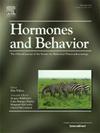在集体主义背景下,催产素在增强群体内疚和促进群体间和解中的作用
IF 2.4
3区 医学
Q2 BEHAVIORAL SCIENCES
引用次数: 0
摘要
群体内疚感是一种强烈的负面情绪,它源于对群体成员有害或不道德行为的意识。它激发了各种形式的修复行为,减轻了群体间的冲突。然而,基于群体的内疚的广泛表达仍然相对较少。因此,如何提高群体内疚的效用一直是群体间冲突研究领域的一个重要课题。人们普遍认为催产素在积极影响社会认知和行为方面发挥着关键作用。因此,我们的研究旨在通过检验催产素是否在集体主义文化背景下增强群体责任、内疚和补偿来研究催产素对群体内疚的潜在调节。为了达到这个目的,我们进行了双盲、安慰剂对照的实验设计:2(治疗:安慰剂vs催产素)x2(组成员:内组vs外组)。结果表明,催产素的使用可以增强基于群体的责任、内疚和补偿。综上所述,对催产素和群体内疚的研究强调了生物过程在塑造社会情绪和认知、增强对受害群体的利他行为和调节群体间关系方面的潜在作用。本文章由计算机程序翻译,如有差异,请以英文原文为准。
The role of oxytocin in enhancing group-based guilt and promoting intergroup reconciliation in a collectivist context
Group-based guilt, arising from the awareness of harmful or immoral actions committed by fellow group members, is a powerful negative emotion. It motivates various forms of reparative behavior which mitigates the intergroup conflicts. However, the widespread expression of group-based guilt remains relatively infrequent. Therefore, how to enhance the utility of group-based guilt remains a paramount issue in the field of intergroup conflict. Oxytocin is widely recognized for its pivotal role in positively influencing social cognition and behavior. Consequently, our research aimed to investigate the potential modulation of oxytocin on group-based guilt by examining whether oxytocin enhances group-based responsibility, guilt and compensation within a collectivist cultural context. To achieve this, we conducted a double-blind, placebo-controlled experimental design: 2 (Treatment: Placebo vs. Oxytocin) × 2 (Group membership: In-group vs. Out-group). The results showed that the administration of oxytocin could enhance group-based responsibility, guilt, and compensation. In conclusion, the study of oxytocin and group-based guilt highlights the potential role of biological processes in shaping social emotions and cognition, then enhancing altruistic behavior toward the victimized group and moderating intergroup relations.
求助全文
通过发布文献求助,成功后即可免费获取论文全文。
去求助
来源期刊

Hormones and Behavior
医学-行为科学
CiteScore
6.70
自引率
8.60%
发文量
139
审稿时长
91 days
期刊介绍:
Hormones and Behavior publishes original research articles, reviews and special issues concerning hormone-brain-behavior relationships, broadly defined. The journal''s scope ranges from laboratory and field studies concerning neuroendocrine as well as endocrine mechanisms controlling the development or adult expression of behavior to studies concerning the environmental control and evolutionary significance of hormone-behavior relationships. The journal welcomes studies conducted on species ranging from invertebrates to mammals, including humans.
 求助内容:
求助内容: 应助结果提醒方式:
应助结果提醒方式:


